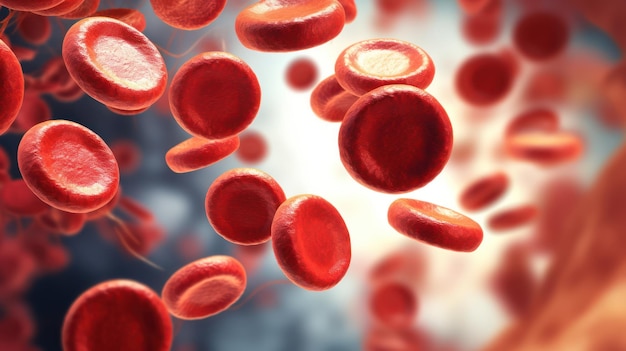- WHO defines anaemia as a haemoglobin concentration less than a specified cut-off point.
- The cut-off point is determined by factors such as age, gender, physiological status, smoking habits, and altitude at which the population is evaluated.
- Age, sex and race-specific nomograms are used.
- Anaemia is classified as mild, moderate, severe and very severe depending on these references.
- The prevalence of anaemia in cancer patients depends on the cut-off chosen for classifying anaemia.
- Anaemia prevalence also varies with the type of malignancy.
- It is more common in haematological malignancies (72%) than in solid tumours (66%).
- Causes of anaemia in cancer can be:
- Inadequate production of RBCs
- Increased destruction of RBCs
- Bleeding
- Mechanisms of anaemia can be disease-related, therapy-related or concomitant factors.
- Disease-related mechanism can be due to production of cytokines or other factors like bone marrow infiltration.
- Treatment-related mechanisms can be due to chemotherapy, radiotherapy or other drugs. It can be transient or sustained.
- The most common symptom of anaemia in cancer is fatigue.
- Different studies have shown decreased survival with cancer disease with the presence of anaemia.
- However, anaemia can also indicate advanced disease in haematological malignancies.
- Anaemia can occur in the effect of chemotherapy and radiotherapy due to tissue hypoxia.
- Since the anaemia in a cancer patient can be multifactorial, the aim of the investigation is to rule out correctable causes:
- Complete blood count
- Reticulocyte count
- Peripheral blood smear
- Nutritional evaluation e.g. Iron studies
- Hemolysis: DCT, ICT
- Bone marrow examination
- EPO estimation
- Treatment:
- No single regimen
- Varies according to causes and presentation
- Red cell transfusion is needed in case of haemorrhage and severe symptoms.
- Causes:
-
- AIHA: steroids
- Nutritional deficiency: supplementation
- Erythropoietin (EPO) reduces the number of patients requiring blood transfusion.
-

Understanding the Link Between Cancer Disease and Anaemia
by
–
